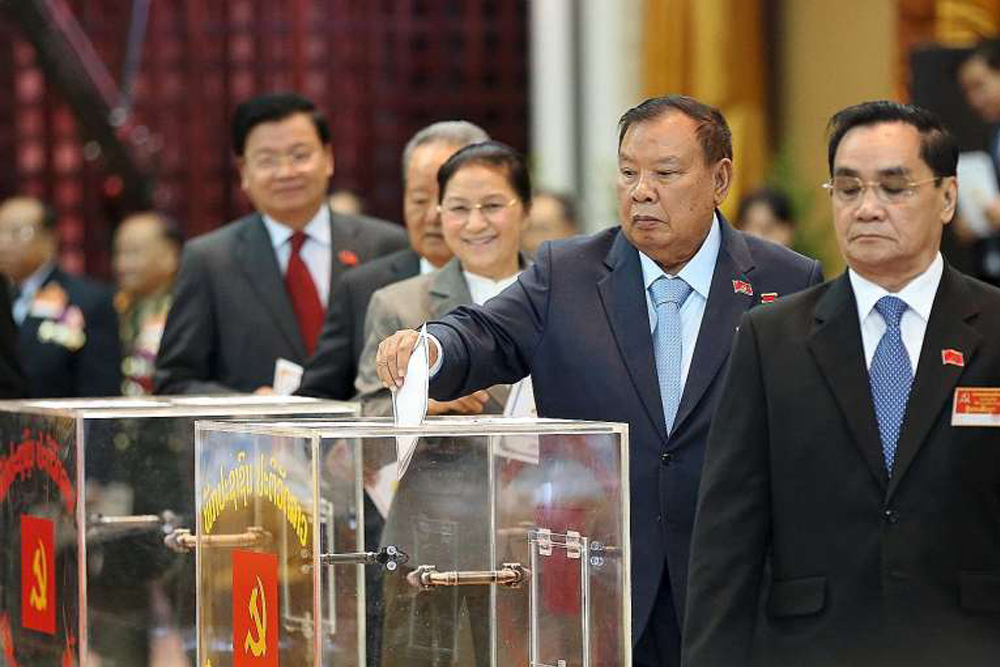
07 Oct Communist party in charge
Laos is a communist country, and the only legal political party is the Lao People’s Revolutionary Party (LPRP). All political activity takes place within the framework of a one-party socialist republic. The de jure head of state is President Bounnhang Vorachith, who also is LPRP general secretary making him the de facto leader of Laos.The head of government is Prime Minister Thongloun Sisoulith. Government policies are determined by the party through the all-powerful nine-member politburo and the 49-member central committee. Important government decisions are vetted by the council of ministers. Although the party controls all branches of government, independent candidates have on occasion been elected to the national assembly. A handful of groups stand in armed opposition to the communist government, some of them associated with particular ethnic communities.
The constitution of 1991, which declares the party to be the “leading nucleus” of the political system, provides for a national assembly, the members of which are elected to five-year terms. The National Assembly elects the president and vice president and approves presidential appointments of the prime minister and members of the cabinet (council of ministers). The president and ministers serve five-year terms.
Since its establishment in December 1975, the Lao People’s Democratic Republic (LPDR) has been effectively controlled by the communist Lao People’s Revolutionary Party (LPRP). This party, in alliance with the Vietnamese communists, carried out the revolution that ended in its seizure of power and the abolition of the monarchy.
The relatively passive Laotian political culture inspires few direct challenges to one-party domination, and party authorities firmly assert the limits of political dissent. LPRP spokesmen justify the monopoly of power with reasons such as the country being too underdeveloped and the people too little educated to permit more than one party. Further, there are too many ethnic groups, and open political participation would lead to disunity and chaos.
